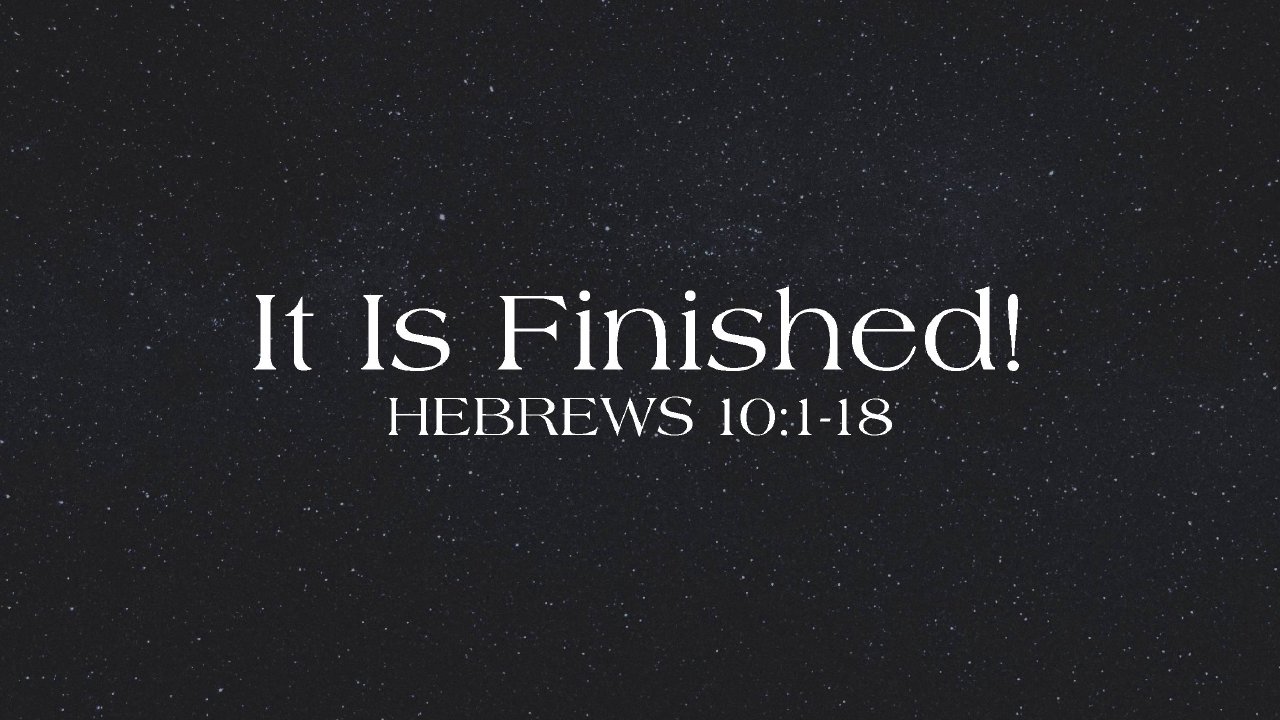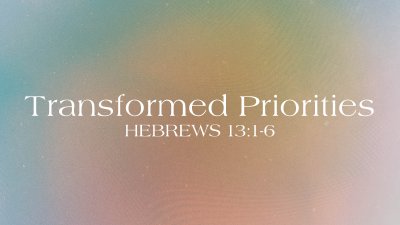Truly believing that God has forgiven all our sins can be one of the biggest struggles we face as believers. Deep down inside each of us fear, doubt, and uncertainty plague us, challenging our confidence that God has truly forgiven all our faults and failures. It is so easy to find ourselves picturing God as sitting in wait, just looking for the opportunity to pounce on our long list of wrongs and unfulfilled rights. Yet this could not be further from the truth! As we delve into this week’s passage of Hebrews, we are reminded of the final words of Jesus on the cross: It is finished.” Our salvation is secure, and our relationship with God restored! We have been gently guided back to the good graces of God. And there is nothing that you or I can do to negate that. How can we be so sure? We're told upon the completion of His work, Jesus sat down; there is no more work to be done. We’re reminded that God will remember our sins no more. Do you believe this? Or does it feel just too good to be true?

It Is Finished! (BG)
Battle Ground Campus
July 24, 2022 • Jon Siebert • Hebrews 10:1–18
More from
Something Better





